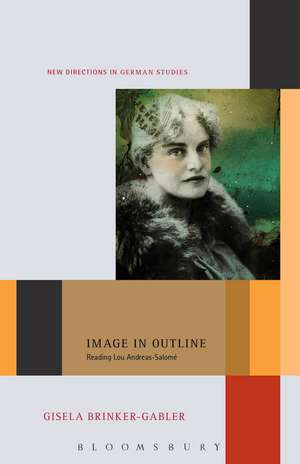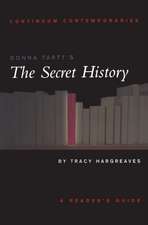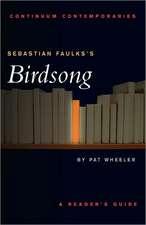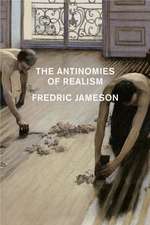Image in Outline: Reading Lou Andreas-Salomé: New Directions in German Studies
Autor Professor Gisela Brinker-Gableren Limba Engleză Paperback – 19 noi 2014
| Toate formatele și edițiile | Preț | Express |
|---|---|---|
| Paperback (1) | 183.24 lei 43-57 zile | |
| Bloomsbury Publishing – 19 noi 2014 | 183.24 lei 43-57 zile | |
| Hardback (1) | 712.49 lei 43-57 zile | |
| Bloomsbury Publishing – 10 oct 2012 | 712.49 lei 43-57 zile |
Din seria New Directions in German Studies
- 14%
 Preț: 183.70 lei
Preț: 183.70 lei -
 Preț: 470.91 lei
Preț: 470.91 lei - 8%
 Preț: 145.46 lei
Preț: 145.46 lei - 11%
 Preț: 219.84 lei
Preț: 219.84 lei - 23%
 Preț: 190.50 lei
Preț: 190.50 lei -
 Preț: 169.04 lei
Preț: 169.04 lei -
 Preț: 217.09 lei
Preț: 217.09 lei - 7%
 Preț: 134.49 lei
Preț: 134.49 lei - 14%
 Preț: 183.24 lei
Preț: 183.24 lei -
 Preț: 217.62 lei
Preț: 217.62 lei - 21%
 Preț: 214.78 lei
Preț: 214.78 lei - 30%
 Preț: 718.85 lei
Preț: 718.85 lei - 22%
 Preț: 237.93 lei
Preț: 237.93 lei - 22%
 Preț: 225.77 lei
Preț: 225.77 lei - 22%
 Preț: 256.77 lei
Preț: 256.77 lei - 22%
 Preț: 225.41 lei
Preț: 225.41 lei - 23%
 Preț: 222.46 lei
Preț: 222.46 lei - 30%
 Preț: 714.12 lei
Preț: 714.12 lei - 30%
 Preț: 568.22 lei
Preț: 568.22 lei - 21%
 Preț: 218.36 lei
Preț: 218.36 lei - 11%
 Preț: 218.47 lei
Preț: 218.47 lei - 13%
 Preț: 186.35 lei
Preț: 186.35 lei - 30%
 Preț: 569.94 lei
Preț: 569.94 lei - 21%
 Preț: 218.83 lei
Preț: 218.83 lei - 22%
 Preț: 256.20 lei
Preț: 256.20 lei - 14%
 Preț: 190.06 lei
Preț: 190.06 lei - 23%
 Preț: 197.14 lei
Preț: 197.14 lei - 13%
 Preț: 255.11 lei
Preț: 255.11 lei - 22%
 Preț: 226.79 lei
Preț: 226.79 lei - 30%
 Preț: 568.14 lei
Preț: 568.14 lei - 14%
 Preț: 191.85 lei
Preț: 191.85 lei -
 Preț: 231.81 lei
Preț: 231.81 lei - 22%
 Preț: 230.24 lei
Preț: 230.24 lei
Preț: 183.24 lei
Nou
Puncte Express: 275
Preț estimativ în valută:
35.07€ • 38.11$ • 29.48£
35.07€ • 38.11$ • 29.48£
Carte tipărită la comandă
Livrare economică 21 aprilie-05 mai
Preluare comenzi: 021 569.72.76
Specificații
ISBN-13: 9781628920178
ISBN-10: 1628920173
Pagini: 176
Dimensiuni: 140 x 216 x 20 mm
Greutate: 0.25 kg
Editura: Bloomsbury Publishing
Colecția Bloomsbury Academic
Seria New Directions in German Studies
Locul publicării:New York, United States
ISBN-10: 1628920173
Pagini: 176
Dimensiuni: 140 x 216 x 20 mm
Greutate: 0.25 kg
Editura: Bloomsbury Publishing
Colecția Bloomsbury Academic
Seria New Directions in German Studies
Locul publicării:New York, United States
Caracteristici
Elucidates current debates on gender, sexuality, cultural difference, modern poetry and creativity
Notă biografică
Gisela Brinker-Gabler is Professor of Comparative Literature at The State University of New York at Binghamton, USA. She has previously taught at the University of Cologne (Germany), the University of Essen (Germany), and the University of Florida (USA). She is the author or editor of fourteen books, including Deutsche Dichterinnen vom 16. Jahrhundert bis zur Gegenwart (1978, 5th revised and extended edition 2007), Writing New Identities: Gender, Nation, and Immigration in Contemporary Europe (1996), and "If We Had the Word. "Ingeborg Bachmann: Views and Reviews (2004, with Markus Zisselsberger).
Cuprins
IntroductionChapter One: Umriss--B(u)ilding Woman or Sexual DifferenceChapter Two: Andreas-Salomé's AestheticsChapter Three: Icon: B(u)ilding Russia or Cultural DifferenceChapter Four: Nachtrauer: B(u)ilding Rilke or Modern CreativityChapter Five: (Un)doing Modern Thought BibliographyIndex
Recenzii
Proceeding from its lucid analysis of relatively known territory in Andreas-Salomé criticism-the 'Human Being as Woman' essay - to the less discussed Rilke texts, Brinker-Gabler's Image in Outline: Reading Lou Andreas-Salomé opens new vistas and insights on Andreas-Salome's surprisingly multidisciplinary writings and thought. Fascinating throughout is the kaleidoscope of links that integrate Andreas-Salomé's developments to a broad historical range of influences and echoes, likewise preceding from the known - Nietzsche, Freud - to the new, fostering new insights on this author's range and contexts: back to Spinoza, Baroque emblems, Leibniz,and Darwin; forward to Irigaray, Kristeva, and Benjamin. Theoretically dense yet lucid, Image in Outline is a welcome new pillar in recent decades' discourse on Andreas-Salomé's contribution to modern cultural and literary thought at the turn of the twentieth century.
With this book, Gisela Brinker-Gabler makes an important contribution to the scholarship on Lou Andreas-Salomé, bringing Andreas-Salomé into dialogue with some of her own contemporaries, such as Henri Bergson, Walter Benjamin, and Martin Buber, as well as with some of our contemporaries, including Luce Irigaray, Elizabeth Grosz, and Julia Kristeva. Brinker-Gabler shows convincingly that Andreas-Salomé was an important and innovative modern thinker who made significant contributions to discourses on gender and cultural difference, border crossings, creativity, and the human condition. This book will be of interest both to Lou Andreas-Salomé scholars and to those who want to learn more about the interdisciplinary discourses circulating in Europe at the turn of the last century.
Brinker-Gabler's erudition is stunning; she clearly commands voluminous knowledge of modern literature and philosophy and draws on this knowledge to make connections and illuminate points ... Image in Outline clearly succeeds in its aim of locating Andreas-Salomé's work in the context of contemporaneous and future theories ... Scholars of modernism should read this book, for it allows a voice and a context to emerge that have received less critical attention than they deserve.
Brinker-Gabler offers readings of a number of Andreas-Salome's nonfictional works that (with the exception of "Der Mensch als Weib") have received little or no critical attention up to now. In her exploration and explication of Andreas-Salome´'s thought, she draws on a wide and interesting variety of thinkers from Spinoza, Leibniz, and Darwin to Benjamin, Irigaray, and Derrida ... Given its broad scope, this book promises to be of interest to everyone who works on the artifacts and the culture of the twentieth century, whether Germanists or not.
The author makes generous use of Andreas-Salomé's rich oeuvre and filters her analysis through the prism of Walter Benjamin, Henri Bergson, Wilhelm Dilthey, Luce Irigaray, Julia Kristeva, Gilles Deleuze, Félix Guattari, et al. to make her point that Andreas-Salomé was part of the avant-garde of her generation, contributing to understanding of gender differences, advancing psychoanalysis with a varied view of narcissism and a subtle concept of post-mourning, furthering modernism's critique of rationalism and positivism, helping to shape that paradigm shift at the turn of the 20th century. Summing Up: Recommended. Graduate students, researchers, faculty.
With this book, Gisela Brinker-Gabler makes an important contribution to the scholarship on Lou Andreas-Salomé, bringing Andreas-Salomé into dialogue with some of her own contemporaries, such as Henri Bergson, Walter Benjamin, and Martin Buber, as well as with some of our contemporaries, including Luce Irigaray, Elizabeth Grosz, and Julia Kristeva. Brinker-Gabler shows convincingly that Andreas-Salomé was an important and innovative modern thinker who made significant contributions to discourses on gender and cultural difference, border crossings, creativity, and the human condition. This book will be of interest both to Lou Andreas-Salomé scholars and to those who want to learn more about the interdisciplinary discourses circulating in Europe at the turn of the last century.
Brinker-Gabler's erudition is stunning; she clearly commands voluminous knowledge of modern literature and philosophy and draws on this knowledge to make connections and illuminate points ... Image in Outline clearly succeeds in its aim of locating Andreas-Salomé's work in the context of contemporaneous and future theories ... Scholars of modernism should read this book, for it allows a voice and a context to emerge that have received less critical attention than they deserve.
Brinker-Gabler offers readings of a number of Andreas-Salome's nonfictional works that (with the exception of "Der Mensch als Weib") have received little or no critical attention up to now. In her exploration and explication of Andreas-Salome´'s thought, she draws on a wide and interesting variety of thinkers from Spinoza, Leibniz, and Darwin to Benjamin, Irigaray, and Derrida ... Given its broad scope, this book promises to be of interest to everyone who works on the artifacts and the culture of the twentieth century, whether Germanists or not.
The author makes generous use of Andreas-Salomé's rich oeuvre and filters her analysis through the prism of Walter Benjamin, Henri Bergson, Wilhelm Dilthey, Luce Irigaray, Julia Kristeva, Gilles Deleuze, Félix Guattari, et al. to make her point that Andreas-Salomé was part of the avant-garde of her generation, contributing to understanding of gender differences, advancing psychoanalysis with a varied view of narcissism and a subtle concept of post-mourning, furthering modernism's critique of rationalism and positivism, helping to shape that paradigm shift at the turn of the 20th century. Summing Up: Recommended. Graduate students, researchers, faculty.
Descriere
Descriere de la o altă ediție sau format:
A exploration of Lou Andreas-Salomé's critical and creative transformation of modern thought
A exploration of Lou Andreas-Salomé's critical and creative transformation of modern thought





















